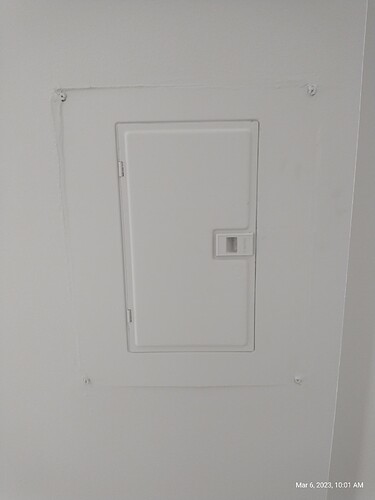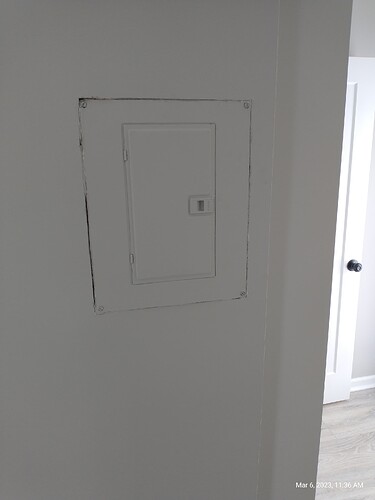Recall #
QO115AFI, QO115AFIC, QO120AFI, QO120AFIC, QOB115AFI, QOB120AFI, HOM115AFI, HOM115AFIC, HOM120AFI, HOM120AFIC, QO115VHAFI, QO120VHAFI, QOB115VHAFI, or QOB120VHAFI.
N-5701 does not appear on this list.
Safety Articles; DOES OSHA ENFORCE NFPA 70E? NO, BUT…
However, OSHA has several comparable standard requirements that are enforceable:
I only bring it up because most people act like taking the dead front off is not dangerous and that is the last thing that a new inspector should think.
Again Mike, I have to disagree with your statement, most people act like taking off a dead front is dangerous, and the few that don’t aren’t too smart and usually learn the hard way that it is dangerous, that is unless the meter is pulled or a remote disconnect is turned to the off position.
I concur. Very dangerous. Many clients stick their fingers in the panel I inspected when my head was turned. Then I got everyone out of the room until the front was dismounted. Same thing occurred.
I rarely open fronts now.
Driving to work is dangerous, still things have to get done…
Well that statement makes me feel all warm and fussy inside. Again, take off as many covers as you please. Then you too can learn the hard way. ASHI makes it mandatory, InterNACHI does not. InterNACHI tells you that it is dangerous. I think that InterNACHI does a good job of educating home inspectors. I have not gone through all the material yet but if I see something that I don’t like I’ll say something. I’m sure that they will take it under advisement and make up their own mind and not resort to name calling and insults.
Have you taken any OSHA training and seen what happens under an arc-fault condition? It ain’t pretty.
That surprises me. I pull every dead front cover that I can. I would guess that I find some defect 80% of the time. I’ve had 2 or 3 instances where a client started to point into the panel, but they never made it past my shout. The only idiot that stuck something in the panel and burnt the end of his screwdriver off, was me about 18 years ago…so, so embarrassing. ![]()
Same here. Just too much to look at in there to ignore it.
I got the seller’s permission to chisel this one out of the drywall earlier this week. I didn’t find really anything major in it, but I wanted to make sure for my young, first-time homebuying client.
Done and put back on…
That’s a best practice. Usually, the seller isn’t around to ask. I just cut them out and make a modest effort to clean up the mess. One seller (ever) complained about the chipped paint around her panel, to which I replied that panels are not supposed to be painted and sealed into the wall and thanks for reminding me to put that in my report, too.
But you also go to a side point. Whenever we have to do that little extra, like chipping out the panel cover, crawling under some low ductwork in a crawlspace, pull the ladder up to access the upper part of the roof, etc, it sure is fun to get rewarded with finding some defect, but sometimes we don’t, but we can still be satisfied that we did a little more than we had to.
And one more point that I and others make on other threads occasionally. Almost all of us, go beyond the InterNACHI SoP to do the kind of good to great inspection that we think is necessary to best serve our clients. When we go beyond the SoP, we defacto create our own personal SoP which we should follow on every inspection we do.
But, it wasn’t readily accessible!! You shouldn’t have done that!!! ![]()
Well, the whole house wasn’t readily accessible as it was unoccupied and nobody shoveled snow. I guess I should have just reported on what I could see from the street, lol. ![]()
![]()
But…in Ohio… ![]()
Are you referring to the SER’s grounding conductor being cut to reduce its size? There’s also the green conductor from what looks to be an SO or SJO (or similar) cord terminated on a breaker.
Yes, I was. We did cover the cord in the discussion above as well. Couple of issues in this panel.
Just to close it out, I did not end up mentioning the modified connector bar in the report. Even though technically it probably goes against the panel manufacturer’s specs, I just couldn’t see how it would be a real life concern.
Yes. (@ lest 10 characters)
You just need faster film!




